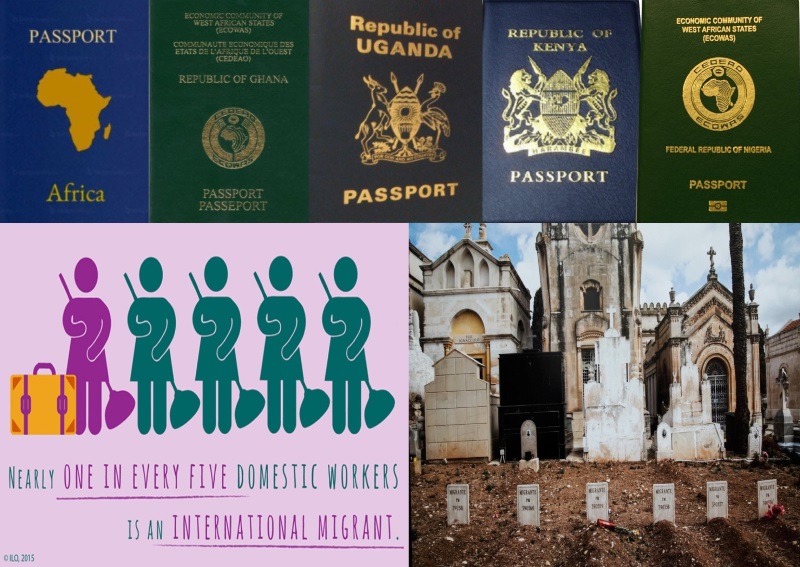
PREFACE: Migration is part and parcel of human existence. It is a historical human phenomenon and will continue to be part of human practice across societies, ages and cultures. It cannot be stopped, but certainly can be better managed to contribute to and accelerate development. African trade unions are committed to ensuring that migration delivers for all, especially for the migrants and members of their families.
It is not constestable that Africans move more within the continent than outside it. Further, more Africans move within their sub–regions to work, reside and establish themselves. However, more Africans are leaving their communities and countries for sundry reasons, most for economic survival and security protection as globalisation effects and violent sectarian conflicts deepen and not relenting respectively.
African migrants and labour migrants are everywhere in the world working to eke a living and to support members of their families. Their contributions, through remittances and skills repatriation have contributed to support family and household socio–economic consumption and small investment and business development. Their contributions to to host/receiving countries have been well documented.
In recent times, African governments have been signing Bilateral Labour Migration Agreements with Gulf Cooperation Council (GCC) States to send labour migrants there. Thus, the pace and rate of African workers moving to the GCC states, especially domestic workers, mostly women as house minders, is on the steady increase. Gains from such movements for the sending countries (SCO) and the receiving countries, as well as for the migrants are tangible.
Unfortunately, tales of woes and ordeals, including horrendous human rights abuses such as avoidable deaths of African migrant workers, as well as the lack of accountability thereof have continued to inundate the African public. Whilst African governments, including the African Union (AU) and the Regional Economic Communities (RECs) are taking measures to address these issues, African trade unions sought to, through this study, to gain better understanding of the African migration context and the human and labour rights abuses African migrants are subjected in the GCC states, with the view to be able to develop and deploy appropriate responses that will contribute to improving how migration can advance development and how rights of African migrants can be better defended and protected.
It is our hope and expectation that this study will be a useful contribution to the task of promoting fair recruitment, prevention of exploitation and human trafficking and also the better defence and protection of the human and labour rights of migrant workers.
Kwasi Adu–Amankwah, General Secretary African Regional Organisation of the International Trade Union Confederation (ITUC–Africa)
